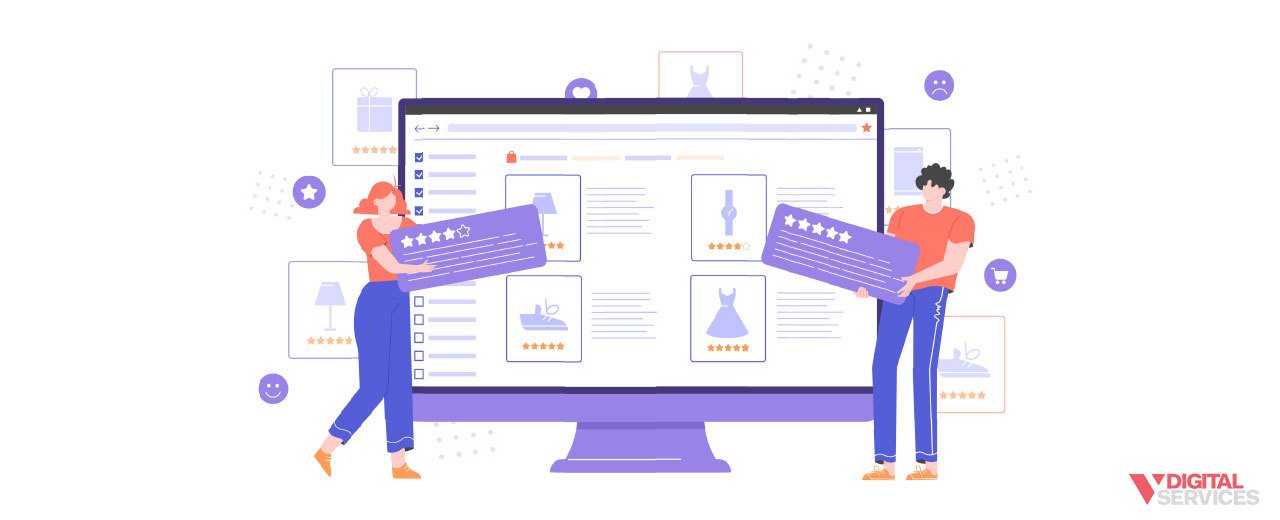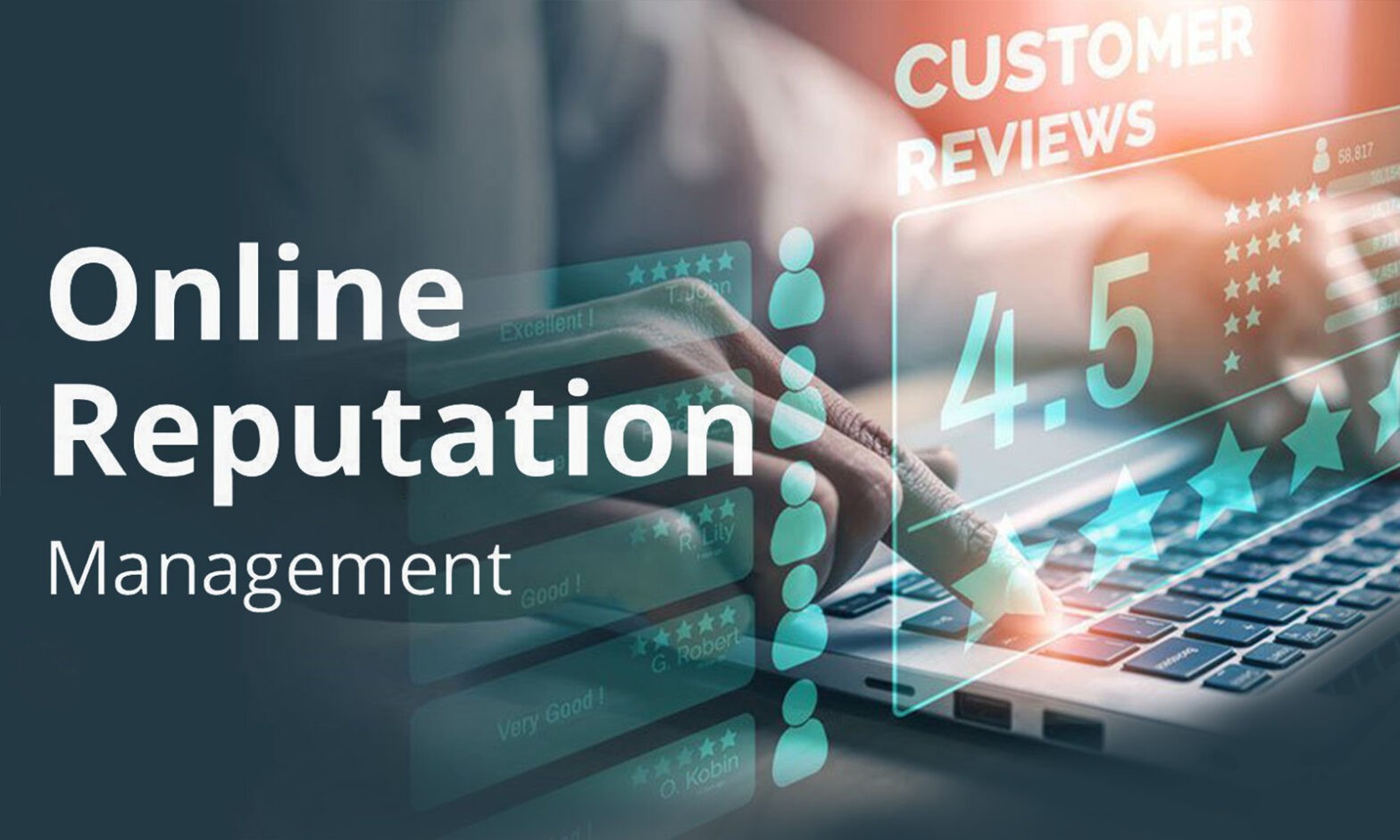Maintaining a good reputation has always been a foundational component of building a successful business. But nowadays, your brand’s reputation goes much further than the conversations taking place in your local community – in our digital era your online reputation can make or break your business.
What is an Online Reputation?
Your online reputation is based on the public’s perception of your brand, specifically related to your digital presence.
Your online reputation can include the following:
- Online reviews and feedback.
- Your social media presence includes interactions with users, mentions, etc.
- Backlinks.
- Your business website.
Think of it as the “first impression” your business makes on a user that finds you online. A user might spend a considerable amount of time gathering information about your business before passing judgment, or they might quickly scan a few Yelp reviews – which is why staying on top of every aspect of your brand’s internet presence counts.
What is Online Reputation Management?
Online reputation management (also called internet reputation management) is the process of managing consumers’ perceptions of your business and taking strategic action to cultivate a positive brand reputation.
Establishing a positive reputation takes a significant amount of time and effort, but the work isn’t done even once you have a distinct presence on the internet.
Whether you know it or not, your brand has an online reputation – and it can have a significant impact on the success of your business.
Think of it as word of mouth, multiplied several times, and opened up to an unlimited audience. Now, you’re no longer limited to just the customers located in the area of your brick-and-mortar location, but you’re also faced with a constantly expanding audience that exists within the digital landscape. And it doesn’t matter if you haven’t personally sought out to create an online presence for your business because online users have likely already done it for you.
Are you feeling worried about managing your online reputation? You don’t have to be. With a strategic approach to internet reputation management and a few valuable tips from professional marketers (otherwise known as your trusted team at V Digital Services), you can make sure that your brand is putting its best face forward online.
Countless internet users could be talking about your business right now, so there’s no time like the present to take control over how your brand, products, and services are perceived in the online world.
What is Online Reputation Monitoring?
The consistent practice of overseeing your brand’s digital presence is referred to as online reputation monitoring and management.
It takes a significant amount of time and effort to establish a positive reputation, but even once you have a distinct presence on the internet, the work isn’t done. Constantly paying attention to how your business is represented is key, requiring a balance of proactive and reactive strategies. In addition to making sure that the public has a positive perception of your business, you also have to keep your brand reputation aligned with your business mission and values.
In many ways, a solid business reputation organically develops through branding efforts and business practices. However, a certain level of involvement is always necessary. And that is exactly where online reputation monitoring and management comes in.
Monitoring vs. Management
There are nuanced differences between reputation management and reputation monitoring, though the two processes often go hand in hand:
- Online reputation monitoring involves proactive strategies for maintaining a brand’s already-existing positive presence.
- Online reputation management relates to the steps taken after an event or issue occurs and the reparative efforts made to bolster the public perception.
Effective monitoring is an excellent way to avoid the need for constant interventions and “reputation repairs.”
The Purpose of Online Reputation Monitoring and Management
For business owners that have yet to experience any major problems with their online reputation, it may seem like there’s little to gain from investing in monitoring and management. However, there are many advantages to making your brand’s online presence a top priority.

Reputation monitoring may be something you can begin to work on independently, though many business owners partner with a professional team from the beginning. Some of the benefits of online reputation monitoring include:
- An increase in the overall number of customer reviews for your business
- A decrease in negative feedback viewable by the public
- More current and past customers leaving positive reviews
- Local SEO improvements thanks to an increase in the volume and quality of reviews
Reputation management aims at some “big picture” goals for your business while continuing to serve the needs related to monitoring. Whereas some steps for online monitoring require only a basic level of experience and skill, reputation management is largely a task relegated to professionals. A brand management agency, like V Digital Services, will handle all aspects of your business’s online reputation to make sure you reap all of the potential benefits, such as:
- The peace of mind of knowing that your online image is being carefully watched
- A steady flow of positive reviews, along with a decrease in negative public reviews
- The implementation of customer service best practices in the professional responses to all incoming reviews
- Effective escalation of issues if needed
- Sustainable growth and success
How to Improve Your Online Reputation
Now, you have a clearer understanding of what makes your reputation online so important. But what can you do – right now – to start improving it?
Even though an outstanding online reputation isn’t something that can be built in a day, there are a few straightforward steps you can take to get your brand on the right track.
1. Stay on top of what’s being said about brands, products, and services.
Being aware of what people are saying about your company is common sense. If you’re able to quickly catch negative feedback, you can respond effectively, handle the matter, and avoid too much damage being done. Answering positive feedback is equally valuable because it demonstrates your appreciation for and dedication to customers.
2. Keep track of online reviews and encourage customers to leave new ones.
For about 90% of consumers, an online review carries the same weight as a personal recommendation from someone they know – and that includes both positive and negative reviews.
Negative reviews are going to happen, simple as that. But rather than simply crossing your fingers and hoping for the best, focusing on being proactive is a far better approach. Come up with ideas to encourage happy customers to submit their feedback and devise a system to respond to negative reviews with a professional, customer-first attitude.
3. Aim for consistency across all your social media profiles.
Social media plays a central role in your online reputation. Both the content you post, share, and interact with matter, as does the overall look and “feel” of your social media profile pages.

Ideally, your brand identity should be consistently represented across all of your profiles and content, including in your:
- Color schemes
- Logos
- Images/video
- Layouts
- Messaging
- Brand voice
4. Get rid of spammy links.
Spammy backlinks can take a toll on your SEO, dropping your Google ranking and making it more difficult for people to find your business online. At the same time, they can affect the quality of your online reputation.
Usually, negative SEO tactics are used by hackers or competitors that are intentionally using “black hat” tactics to tarnish your digital presence. It’s up to you to hunt down low-quality backlinks, and either request their removal or use Google’s disavow tool to reduce their impact.
5. Expand your influence.
Finally, crafting high-quality, relevant content that establishes your brand as a trustworthy authority and source of information is one of the best ways to create a positive online reputation. Not only does great content build your digital influence, but it can also help you boost your search rankings with keyword targeting.
Why Online Reputation Monitoring & Management Matters
By proactively monitoring and managing your brand’s online reputation, you can reap valuable benefits while simultaneously avoiding potentially disastrous situations. Rather than taking a solely reactive approach to damaging feedback or news, you can invest effort into nurturing a strong, positive reputation that can weather challenges – and be well-prepared to address issues as soon as they occur.
Among the many benefits of online reputation monitoring and management is customer loyalty, which fuels increased revenue and business growth. Much like traditional word-of-mouth, your online reputation functions as a way to attract new customers and sustain existing relationships.
Data shows that nearly 80% of consumers always or regularly check online reviews when looking for local businesses. And when you consider that 99% of consumers have gone online to research a local business in the last year, you can see how your online reputation has a massive impact on your success.
How to Create an Online Reputation Management Plan
Managing your online reputation is a continuous process, something you’ll need to do for as long as you’re running your business. For this reason, many business owners invest in professionally-provided online reputation management and monitoring services. By turning the task over to a skilled professional, you can be confident that it is receiving the time and attention required.
Whether starting from scratch or improving existing processes, creating a clear reputation management plan will help you stay on track.
Step 1: Research your existing online reputation.
First, you’ll need to figure out exactly what people are saying about your business online right now. The goal is to inventory all the places where your business is being discussed so that you can get a complete picture.
You can conduct an online reputation audit by:
- Searching your business name on Google and other search engines.
- Evaluating your customer reviews on review sites and social media.
- Assess your social media presence on your business page and in relevant groups (local community pages, industry pages, etc.).
- Review your competitors’ feeds and reviews to pinpoint any mentions of your business.
If you choose to work with a professional, you can typically expect to gain access to specialized reputation management tools and software. There are several different programs/platforms that can collect all of your business reviews from third-party websites, manage social media accounts, locate inaccurate business data, and more.
Step 2: Create a strategy for reputation management.
Once you have a clear understanding of the overall perception of your business, you can begin to pinpoint opportunities for improvement.
The current state of your reputation will shape your internet reputation management strategy.
For example, suppose you discovered that public perception of your brand is largely negative. In that case, you will need to implement practices that respond to negative feedback appropriately while also considering how to improve customer experiences.
On the other hand, if your brand’s online reputation is primarily nonexistent at this point (perhaps your business is relatively new), then one of your main goals will be to work on building a positive presence from the ground up.
No matter what your current standing may be, your strategy should address the following crucial components:
How will online conversations be monitored on a consistent basis?
Determine who will be responsible for reputation monitoring tasks, including regularly researching reviews, social media conversations, and the like. Outline expectations for how regularly this research is conducted, as well as how in-depth it should be.
How do you know which comments or reviews require responses?
An integral part of our brand’s internet reputation is your responsiveness to online users because it is seen as highly representative of your commitment to customer service. That doesn’t necessarily mean you must craft in-depth responses to every comment, mention, or review. However, there should be a process for prioritizing responses to both positive and negative feedback.
What is the tone that you will use to respond to online feedback?
While it’s true that responding to comments and feedback is important, it can end up damaging your brand if you fail to maintain the right tone. We’ve all seen businesses answer negative feedback with argumentative or defensive comments, which only results in the brand doing even more harm to its reputation.
Create a guide to use when responding to feedback (positive and negative), so you can maintain professionalism and your overall brand identity. It can also be handy to have a crisis management plan, to be used in situations that have escalated significantly or are challenging to deal with.
Step 3: Use comments, feedback, and reviews as opportunities to take action.
Criticism can be tough to swallow, no matter how experienced a business owner you may be. However, it can also be a helpful tool for improving your business in the long run.
Consumer feedback can highlight the areas of your business that may need more attention, as well as certain aspects that might need to be reevaluated. Positive reviews can be equally beneficial, pointing out the things you’re already doing right.
Taking effective action based on feedback is a fundamental skill you’ll need to keep your business up and running – and your online reputation can be an excellent source of information.
Step 4: Repeat.
The three steps above should be practiced as part of an ongoing cycle, and they may even coincide. The work is never done in online reputation monitoring and management, but it’s definitely worth it.
Simplifying Online Reputation Management for Businesses
Managing your online reputation is a full-time job, which is why so many businesses partner with professionals to achieve the best possible – and least stressful – results. From mitigating the impact of negative reviews to strengthening your brand’s online presence, an experienced marketer can tackle the essential tasks that will support your long-term success.
V Digital Services is a respected provider of digital marketing and online reputation management services, working closely with a diverse range of businesses that want to leverage smart strategies and tech-savvy tools to their fullest potential. Based on your specific needs, our team will devise an online brand reputation management plan that fits your business objectives flawlessly. And because we are a full-service digital marketing agency, you can also choose to complement your internet reputation management strategy with social media marketing, paid advertising, SEO, or any other support you may need.
Get Professional Online Reputation Management from V Digital Services
You want to make sure that your brand has a good reputation online, but monitoring and management are full-time jobs – or, more accurately, several full-time jobs. When you partner with V Digital Services for online brand reputation management services, you’ll have a team of experts on your side.
For more details about how a better online reputation can support your long-term business goals, contact V Digital Services today!
Featured Images: Blue Planet Studio/Shutterstock




 PREVIOUS
PREVIOUS